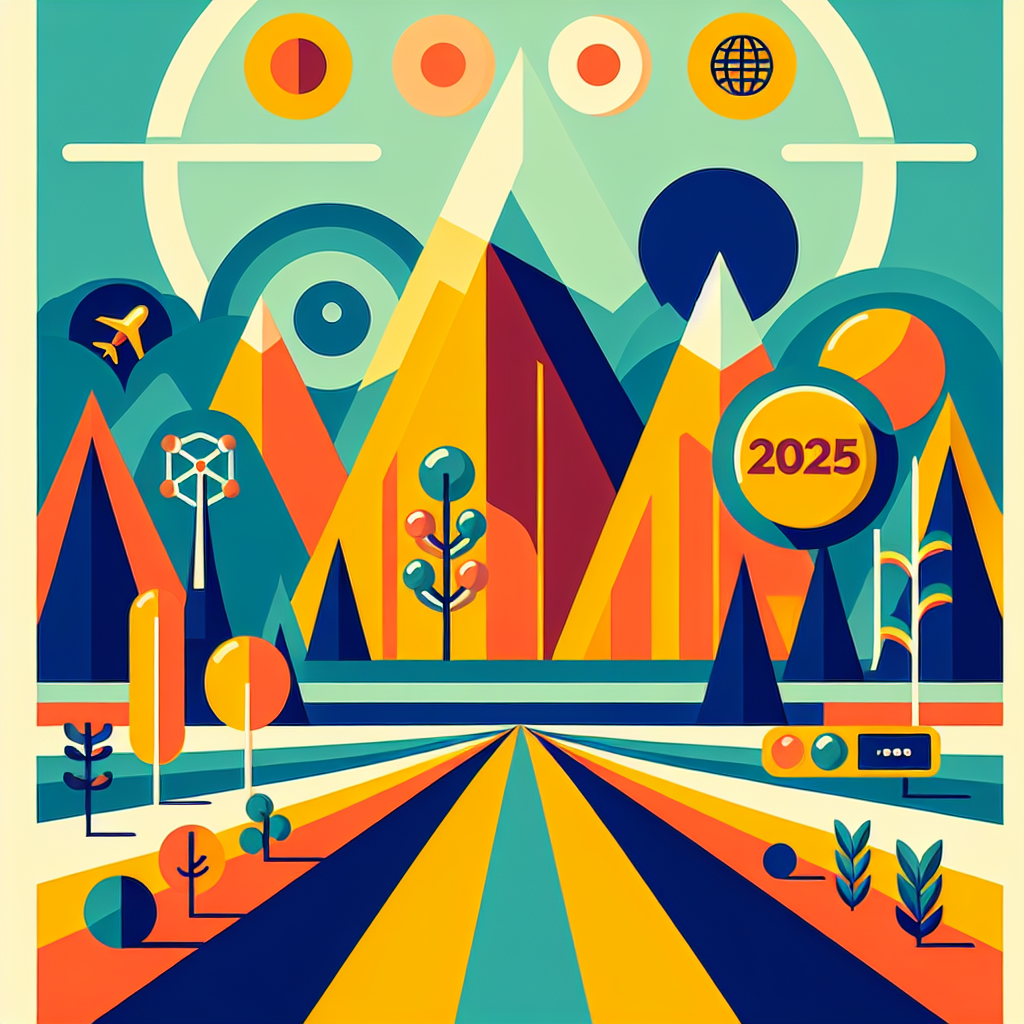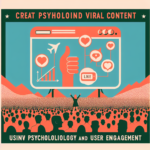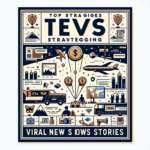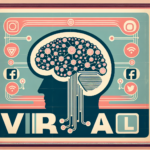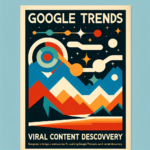Introduction
Are you wondering what the future holds for content marketing? As technology evolves, so does the world of content marketing. This article explores the prominent trends projected for content marketing in 2025.
Did you know, by 2025, an estimated 70% of marketers are expected to use AI for enhancing user experience? And that’s just one of the exciting advancements on the horizon.
We’ll explore topics such as personalized content experiences, voice search optimization, the role of AI, and much more. Let’s get started!
The Future of Content Marketing in 2025
Personalized Content Experiences
The future of content marketing is leaning heavily towards personalized experiences. By 2025, expect to see:
- AI-driven content recommendations tailored to individual preferences.
- Dynamic web pages that adjust content in real-time based on user behavior.
- Utilizing data analytics for in-depth understanding of audience segments to craft more targeted messages.
Video and Interactive Content Dominance
As video content continues to grow, marketers must adapt:
- Short-form videos will become even more popular due to platforms like TikTok and Instagram Reels.
- Interactive content such as polls, quizzes, and augmented reality (AR) experiences will gain traction.
- Live video streaming will be a key tool for real-time engagement and connection.
Voice Search Optimization
With the rise of voice assistant technologies, optimizing for voice search is essential:
- Focusing on natural language queries to align with how users speak to devices.
- Structuring content to provide concise, direct answers to common questions.
- Incorporating conversational keywords and phrases in content strategy.
Data Privacy and Responsible Marketing
By 2025, data privacy will be a significant concern:
- Compliance with enhanced privacy regulations such as GDPR and CCPA will be non-negotiable.
- Transparent data collection practices to build and maintain consumer trust.
- Utilizing first-party data responsibly while respecting consumer consent.
Content Marketing Statistics for 2025
Let’s look at some numbers that can help guide strategies:
| Trend | Projected Impact |
|---|---|
| AI-Driven Personalization | 70% of marketers will use AI to enhance user experience. |
| Video Content | 80% of all internet traffic will be video-based. |
| Voice Search | 50% of all searches will be voice queries. |
For further insights into future trends, check out Forbes.
Best Practices for Viral Content Marketing in 2025
Emphasizing Storytelling over Promotion
By 2025, marketers will need to shift their content focus more on storytelling and less on direct promotion. The best content will be designed to spark emotion and relate to consumers on a personal level, which in turn can result in higher shareability and potential for virality. This includes:
- Focusing on narratives that highlight a brand’s values, vision, and positive impacts.
- Integrating user-generated content (UGC) to amplify customer stories.
- Aligning content campaigns with social causes or trends to connect with a wider audience.
Leveraging Influencer Partnerships
In 2025, influencer partnerships will play a great role in reaching wider audiences and boosting the virality of content. This can be achieved by:
- Collaborating with influencers that align with the brand and share similar audience demographics.
- Encouraging influencers to co-create content for an authentic reach.
- Utilizing micro-influencers or niche influencers known for higher engagement rates and audience trust.
Investing in Augmented Reality Experiences
Augmented reality (AR) will become increasingly accessible by 2025 and provide new opportunities for viral content. AR can enhance user engagement and promote content sharing, particularly on social platforms. This entails:
- Developing AR filters or experiences tied to the brand’s products or promotions.
- Leveraging AR for interactive product demos or virtual try-ons.
- Partnering with platforms like Snapchat or Instagram, renowned for their AR capabilities.
Sustaining Social Media Engagement
Social media platforms will continue to be a hub for viral content. However, marketers will need to adapt to algorithm updates and demographic shifts to stay effective. This includes:
- Frequent testing and optimization of content to find what works best with the platform’s algorithm.
- Engaging with audience comments or shares promptly to boost visibility and reach.
- Exploring emerging social platforms catering to younger demographics to stay ahead.
Viral Content Marketing Statistics for 2025
Here are several interesting numbers that summarize what to expect in viral content marketing in 2025:
| Trend | Expected Change |
|---|---|
| Storytelling Content | 92% of consumers want brands to make ads feel like a story. |
| Influencer Marketing | Expected to reach $15 billion by 2022, observing constant growth thereafter. |
| Augmented Reality Content | Projected to reach $198 billion by 2025 from $46 billion in 2021; hinting at its rising significance in content marketing. |
| Social Media Engagement | Posts that include images produce 650% higher engagement than text-only posts. |
To stay tuned with the latest trends, Business Insider could be a great resource.
Emerging Marketing Trends in 2025
Rise of the Metaverse
By 2025, the metaverse—virtual worlds where users interact and experience social activities—is expected to play a pivotal role in digital marketing. As businesses adopt this innovative space, anticipate the following:
- Brands creating virtual storefronts to sell products and interact with customers.
- Sponsorship opportunities within metaverse platforms for virtual events or branded experiences.
- Investing in metaverse influencers to reach digital-native consumers.
Sustainability Marketing Focus
Sustainability will become a core focus for consumers, pushing brands to adapt their marketing strategies:
- Highlighting eco-friendly practices in marketing campaigns to attract environmentally conscious consumers.
- Transparency about supply chain practices to build trust and brand loyalty.
- Partnerships with eco-friendly organizations to enhance brand image and contribute to social good.
Conversational Marketing Evolution
Conversational marketing, which focuses on real-time, personalized communication, will continue to evolve:
- Integration of chatbots across all digital platforms for instant customer service.
- Use of AI to simulate natural language conversations that guide users through the sales funnel.
- Incorporating voice-activated queries to enhance user interaction on websites and apps.
AI-Powered Marketing Analytics
With the sheer volume of data available, AI plays a central role in analyzing and predicting consumer behavior:
- Predictive analytics to forecast trends and optimize marketing strategies.
- Automation of data collection processes to focus on strategic planning.
- Understanding customer sentiment through AI analysis of social media interactions.
Influencer Marketing Automation and Regulation
As influencer marketing grows, automation and regulation will become important aspects:
- Automation platforms to manage influencer relationships and streamline campaign workflows.
- Stricter regulations for transparency and authenticity, ensuring consumers recognize paid promotions.
- Enhanced focus on micro and nano influencers for authentic engagement at lower costs.
For an in-depth analysis of the marketing trends expected for 2025, check out this resource from Business Insider.
The Role of AI in Content Marketing
AI-Generated Content
AI’s capabilities extend beyond analysis and personalization, reaching into content generation itself:
- AI tools can produce written content, from simple product descriptions to complex reports, freeing up human resources for strategic tasks.
- These tools can also assist in multilingual content creation, ensuring consistency and accuracy across global markets.
- Content generation aligns with data-driven insights, ensuring relevance and timeliness.
AI in Image and Video Analysis
AI’s impact also touches on enhancing visual content:
- AI algorithms can analyze visual content performance, recommending edits for improved engagement.
- Tools that utilize AI can assist in generating realistic graphics and edits, saving time and resources.
- AI-powered video editors can automate mundane tasks, like trimming clips or adding transitions, enhancing production efficiency.
Enhancing Customer Interaction with AI
AI promotes more dynamic customer interactions:
- Chatbots have evolved to provide more personalized, efficient customer service by understanding customer queries and context better.
- AI algorithms tailor user experiences on websites, offering personalized recommendations and content paths.
- Predictive AI can anticipate customer needs, offering solutions before issues arise, enhancing satisfaction and loyalty.
AI Analytics and Campaign Optimization
AI’s analytical capabilities are transforming how campaigns are developed and assessed:
- AI tools provide real-time analytics, allowing for immediate adjustments and enhancements to marketing strategies.
- Predictive analytics can forecast trends based on historical and real-time data, helping brands stay ahead of the curve.
- AI helps in identifying patterns and insights from complex datasets, optimizing future campaign strategies effectively.
For more insights on how AI is transforming content marketing, explore the detailed exploration provided by Forbes.
Wrapping Up: The Future Landscape of Content Marketing
The future of content marketing seemingly lies in highly personalized experiences, dictated and enhanced by rapid advancements in AI technology. By 2025, we anticipate the proliferation of dynamic web pages, AI-driven content recommendations, and a deep, data-driven understanding of audiences. Video content, particularly interactive and short-form videos, are projected to dominate the marketing sphere, with live-streaming playing a key part in real-time consumer engagement.
Optimizing for voice search, using more conversational language patterns, and structuring content to provide accurate direct answers will cater to the rise of voice assistant technology. At the same time, it is clear that transparency in data collection, compliance with stricter privacy regulations, and responsible data use will be paramount for consumer trust and legal compliance. Furthermore, with the expectation of prevalent augmented reality experiences and an increasing reliance on influencer partnerships, brands will need to operate on multiple digital platforms and effectively adapt to algorithm updates and demographic shifts.
The emerging marketing landscape also signals a significant shift towards the incorporation of the Metaverse, sustainability-centered marketing, conversational marketing, and AI-powered analytics. AI will not just inform and direct content marketing strategies but also generate content, analyze visual content, enhance customer interactions, and optimize campaigns. The future promises an exciting era for content marketers, teeming with innovative approaches and cutting-edge technologies designed to captivate and engage audiences like never before.
Frequently Asked Questions – FAQs
What are the key trends in content marketing for 2025?
Key trends include personalized content experiences, video and interactive content dominance, voice search optimization, AI involvement in various aspects, and an increasing focus on data privacy and responsible marketing.
How will AI contribute to the future of content marketing?
AI is anticipated to take a central role in shaping personalized content experiences, optimizing voice search, data analysis, content generation, image & video analyses, enhancing customer interaction, and optimizing marketing campaigns.
How important will the metaverse and sustainability be in future marketing strategies?
By 2025, both the metaverse and sustainability are expected to be pivotal in marketing strategies, with brands likely to create virtual storefronts within metaverse platforms and highlighting their eco-friendly practices to attract environmentally conscious consumers.
